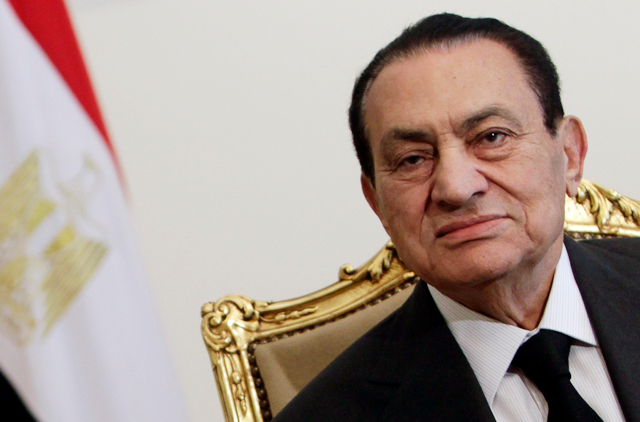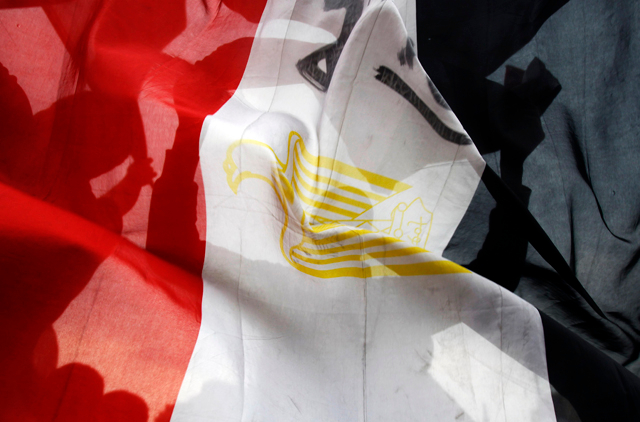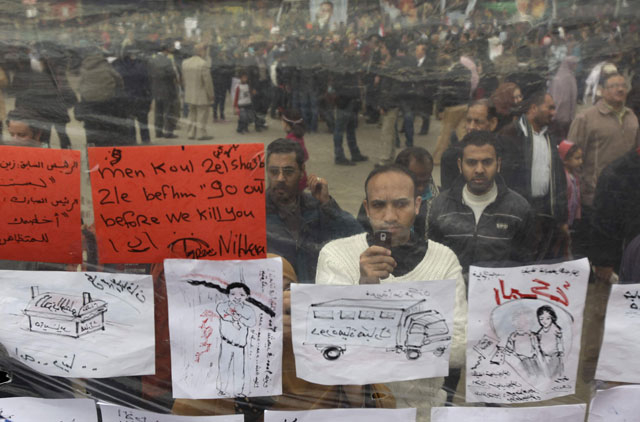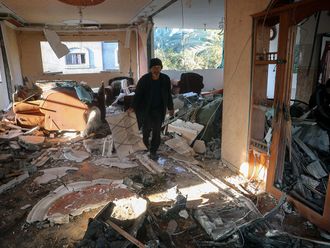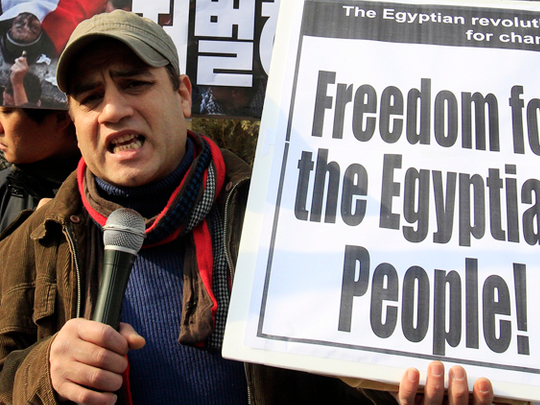
Cairo: Egypt has a plan and timetable for the peaceful transfer of power, the vice president said on Tuesday, as protesters called more demonstrations hoping to show their campaign to oust President Hosni Mubarak remains potent.
Vice President Omar Sulaiman also promised no reprisals against the protesters for their two-week campaign to eject Mubarak after 30 years in office.
"A clear road map has been put in place with a set timetable to realise the peaceful and organised transfer of power," said Sulaiman, who has led talks with opposition groups including the Muslim Brotherhood.
So far the government has conceded little ground in the talks. Mubarak, who has promised to stand down when his term expires in September, appears to be weathering the storm engulfing Egypt, at least for the moment.
"The president welcomed the national consensus, confirming that we are putting our feet on the right path to getting out of the current crisis," Sulaiman said in comments broadcast by state television, after briefing Mubarak on the talks.
Hundreds of thousands have joined previous demonstrations and the United Nations says 300 people may have died so far.
Some normality is returning to Cairo. Traffic was bumper to bumper in the city centre on Tuesday and queues quickly built up at banks, which are still open only for restricted hours.
While opposition groups talk to Sulaiman, mainly younger protesters called for a push to remove Mubarak as the authorities tried to squeeze them out of central Cairo.
Tuesday's demonstrations will test their ability to maintain pressure on the government. The protesters camped out in tents on Al Tahrir Square have vowed to stay until Mubarak quits, and plan more mass demonstrations on Tuesday and Friday.
The release of a Google Inc executive, Wael Ghonim, after two weeks in which he said he was kept blindfolded by Egyptian state security may galvanise support. Activists say the Egyptian was behind a Facebook group that helped to inspire the protests.
Mubarak receives letter from Khalifa
Meanwhile, Mubarak has received a letter from President His Highness Shaikh Khalifa Bin Zayed Al Nahyan.
This came as Mubarak received Shaikh Abdullah Bin Zayed Al Nahyan, Foreign Minister, at the Presidential Palace in New Egypt, Cairo.
Watchdog: Military oppressing journalists
Meanwhile, an international journalism watchdog group has accused Egypt's military of obstructing the work of reporters covering the crisis in the country.
Foreign reporters in Egypt without local credentials were not permitted by the military to enter Tahrir Square, where thousands of protesters have been calling for President Hosni Mubarak's ouster for the last two weeks.
The statement by the New York-based Committee to Protect Journalists also accused the military of detaining journalists and confiscating their equipment.
Protesters call for push to eject Mubarak
Egyptian activists have called for 1 million people to fill the central Tahrir Square on Tuesday.
Protesters are rallying around a recently released Google Inc. executive as they try to maintain the momentum of a mass protest calling for President Hosni Mubarak's ouster.
Some 90,000 have signed a Facebook page calling Google marketing manager Wael Ghonim to be their leader, and they expect him to appear in the square Tuesday afternoon, a day after he was released from detention.
Ghonim has said he was the administrator of a Facebook page used to organize Egypt's unprecedented pro-democracy uprising
.
In pictures: Cairo protests
Tuesday's demonstrations will test the protesters' ability to maintain pressure on the government after Mubarak, 82, refused calls to end his 30-year rule now. He has said he will stay until an election in September but will not run in it.
Hundreds of thousands of people took part in previous demonstrations and the United Nations says 300 people may have died so far.
Sops to quell unrest
Egypt's regime has offered a string of concessions in the face of the strongest threat yet to its rule, but so far nothing that uproots its entrenched monopoly on power.
In an example of the levers it can pull, the government announced a 15 per cent raise Monday for some 6 million public employees - a potent message to almost a quarter of Egypt's labor force about where their loyalties should lie.
Leading the effort is Vice President Omar Sulaiman, a canny former intelligence chief with vast experience in international negotiations, who has promised to carry out change.
However many protesters and their allies warned that the steps toward democratic reform he is offering look more like an effort to divide and conquer the opposition by offering cosmetic gestures.
US urges Egypt to uphold international treaties
The United States led pressure Monday on Egypt's future leaders to honor existing treaties, alluding to the peace process as the Muslim Brotherhood joined talks on the Arab nation's political transition.
Washington "will be a partner" to an Egyptian government, White House spokesman Robert Gibbs vowed.
But he warned: "We would expect that that partner would uphold particularly the treaties and the obligations that the government of Egypt, and ultimately the people of Egypt, have entered into."
Egypt has played a key role in the Middle East peace process, becoming the first Arab country to officially recognize Israel with a peace treaty signed in 1979. But the historic accord has been sharply criticised by the Muslim Brotherhood.
Egyptian Vice President Omar Sulaiman Sunday tried to appease days of anti-government protests by inviting several opposition groups to join him on a panel to pilot democratic reform.
Opposition parties, including the powerful Islamist Muslim Brotherhood, repeated their demand that beleaguered President Hosni Mubarak must stand down or immediately delegate his powers to Suleiman.
Since the start of the unrest, Israel - Washington's biggest ally in the region - has voiced fears Islamists could seize power in Cairo, threaten to tear up the peace treaty and destabilize the geo-political map.
In Jerusalem, Israeli Prime Minister Benjamin Netanyahu in a speech to European lawmakers urged "the international community to demand that a future government in Egypt respect the peace treaty with Israel."
US President Barack Obama said Monday he believed progress was being made amid all the upheaval in Egypt. "Obviously, Egypt has to negotiate a path and they're making progress," he told journalists.
With inputs from agencies and WAM


